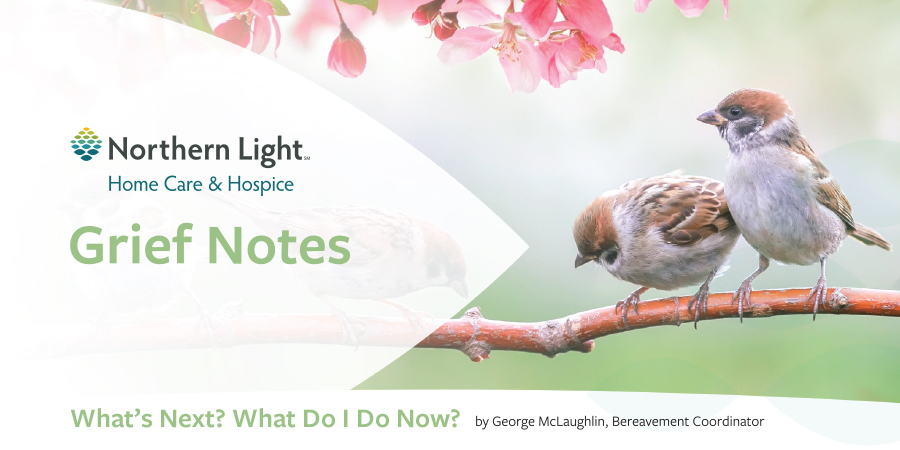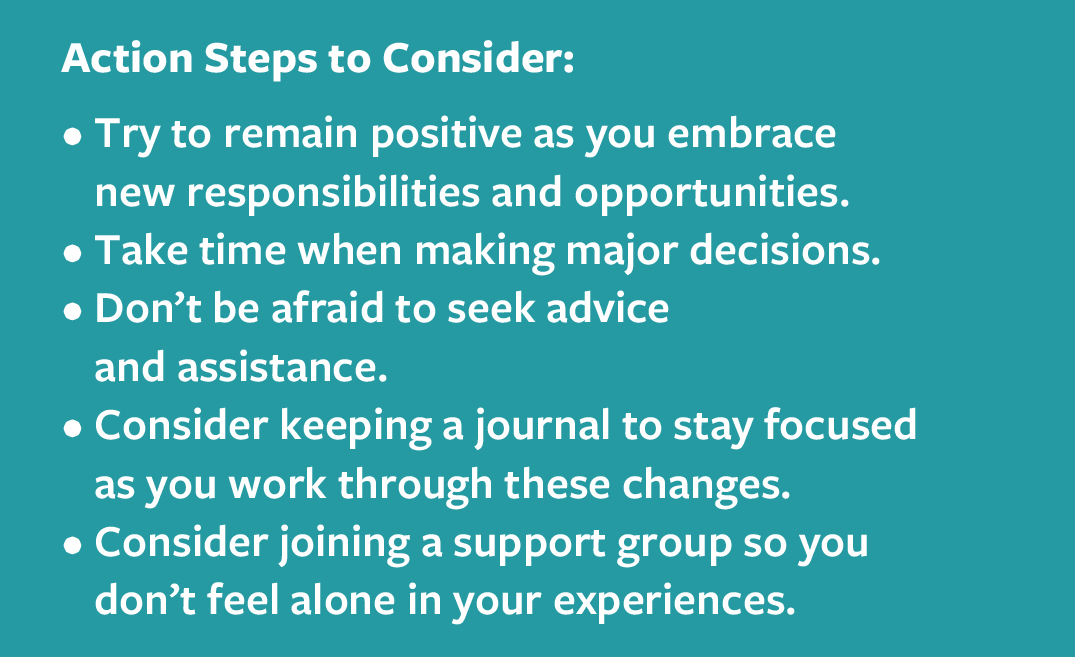LATEST NEWS
We are all just walking each other home. - Ram Dass
LATEST NEWS
We are all just walking each other home. - Ram Dass

The death of a loved one creates many changes for family members and friends, but especially for caregivers. For weeks, months or even years life has been focused on meeting the everyday needs of your loved one. Life is suddenly different as the focus is now forever changed. Nothing seems to be the same. Adjusting to new life situations, ranging from everyday routines to future plans, will take some time.
Areas of Anticipated Change:
• Plans and Priorities. There may be significant changes that reflect what matters most to you now. A previous priority, such as work, may be replaced by a new priority, such as spending more time with family and friends or personal health and well-being. As you adjust to a new lifestyle, it may become necessary to change priorities for practical reasons, to alter goals, or delay taking steps to achieve them.
• Relationships. Following the death of a loved one, some friends or family members may struggle with what to say or how to interact with you. Some may distance themselves while others are drawn even closer. Refocusing your life may result in a different connection with others. New relationships and friendships may also develop in time.
• Routines. While caring for a loved one who has been sick, much of your daily routine has likely involved appointments and other caregiving tasks. With their death, this routine ends, leaving you with a deep sense of loss and missing your caregiving responsibilities. Over time you will be able to develop a new routine that begins to feel comfortable and may involve taking on some tasks he or she used to handle.
• Finances. The death of a family member often impacts a family’s finances and brings additional strain to an already difficult situation. There may now be less income along with increased expenses making it necessary for you to work again or begin work for the first time to help meet current needs.
• Interests. You may no longer be interested in some activities you previously enjoyed, or you may develop new interests. These could include becoming involved in activities that were important to your loved one or volunteering at a local hospital or for your local hospice program.
• Faith and Spirituality. Following the death of someone you love, you may contemplate your religious or spiritual beliefs or your understanding of the meaning of life. On the other hand, you may find that your faith becomes stronger and an unequaled source of comfort.

In conclusion, change is normal and part of your journey toward healing and wholeness. Please do not hesitate to reach out to those at Northern Light Home Care & Hospice for guidance and support.
Six-week Grief Support Groups will be offered in all areas of The County based on interest this fall. We require a minimum of five participants in an area to hold a Grief Support Group, and each group is limited to twelve participants. Please contact George McLaughlin, Bereavement Coordinator for Northern Light Home Care and Hospice, at 498-9039 or by email at gmclaughlin@northenlight.org if you are interested or desire more information about these groups.
As your Bereavement Coordinator, I am available by phone for grief support. If you would like to arrange a time to talk or meet one-on-one, you may email your request to George McLaughlin at gmclaughlin@northernlight.org or call me at 207-498-9039. I will get back to you as soon as I can. Our agency toll-free number is also available to you; 1-800-757-3326.